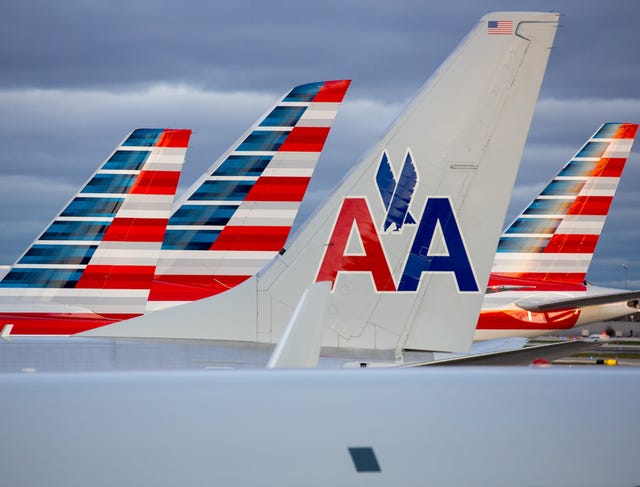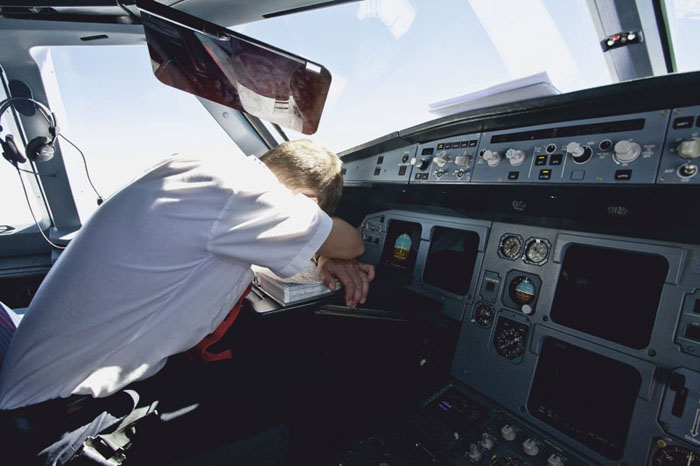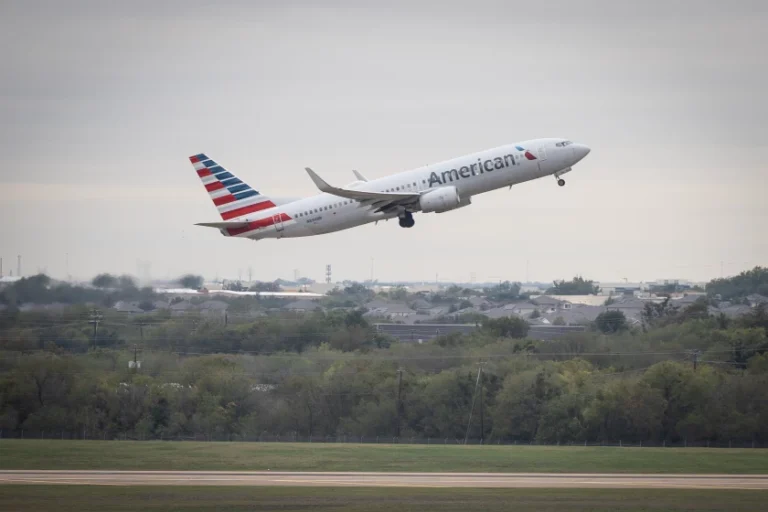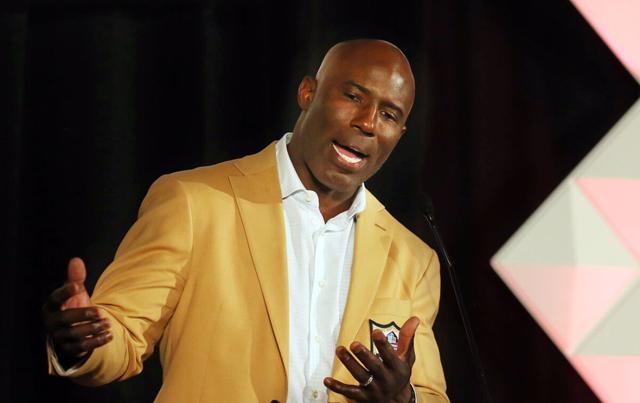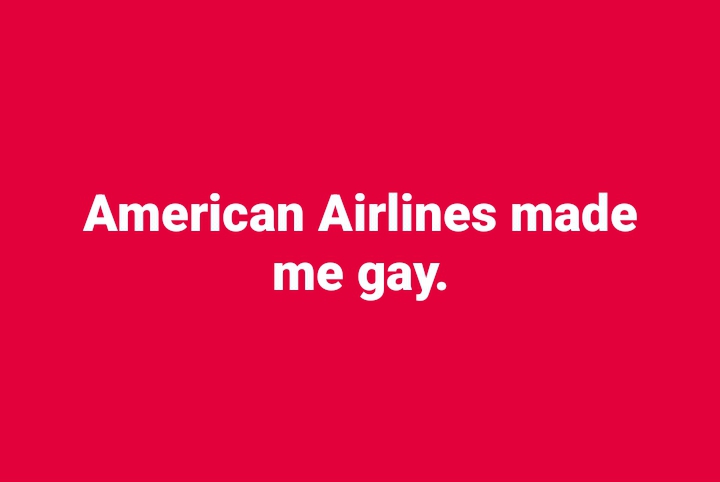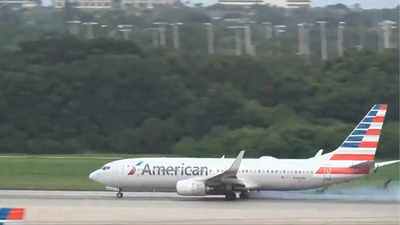American Airlines reduces options for travelers with delayed, canceled flights
“Other airlines” are next on the list, and whether you get that option depends on your status, or lack thereof:
American’s most prized travelers, those with status at or near the top of its frequent-flyer program and those in first class on transcontinental flights, get first dibs. Agents are advised to do everything possible to rebook them on American or partner flights, but the goal is getting them to their destination the fastest, even if on another airlines.
Passengers with the next tiers of frequent-flyer status (platinum, gold and others) are to be put on other airlines only if their American flight is delayed more than five hours.
Passengers with no status are not to be put on another airline.”Ultimately, we’re trying to cut down on the number of passengers we rebook on other airlines,” Feinstein said.
He declined to say why, but airlines pay each other for putting passengers in each others’ seats when things go wrong, so money is likely a big driver.
Feinstein notes that there are several exceptions to the “no other” airlines policy. The policy lists several: unaccompanied minors, customers with disabilities, no hotel availability for overnight stays, special occasions including funerals, weddings, surgery and cruises.”Our team members have the ability to get exceptions to the policy based on individual circumstances,” Feinstein said.
Brett Snyder, whose Cranky Concierge service books travel and also troubleshoots passengers’ travel problems, says having a policy is a good idea because it gives employees a framework when flight problems arise.
But he thinks American went too far with this one because it sends a message that travelers without frequent-flyer elite status aren’t important to the airline”This seems a little overreaching,” he said. “It seems more punitive. And it just really seems unfair.”
Delta Air Lines has a similar pecking order for re-booking travelers, with agents instructed to look first at other Delta flights, followed by partner airlines and, when necessary, competitors’ flights in cases where they have a re-accommodation agreement with another airline. (Note that Southwest Airlines and low-cost carriers such as Spirit do not have such agreements with other carriers.
“The approach at Delta is pretty simple: Give our people the autonomy to do what’s right for the customer,” Delta spokesman Morgan Durrant said in an e-mail.
United Airlines has a similar re-booking policy, with the first goal to re-book passengers on the next available United or United Express flight, spokeswoman Maddie King said.
If the next United flight isn’t until the following day, the airline books passengers on a partner airline. “Other airlines” are next on the list, and whether you get that option depends on your status, or lack thereof:
American’s most prized travelers, those with status at or near the top of its frequent-flyer program and those in first class on transcontinental flights, get first dibs. Agents are advised to do everything possible to rebook them on American or partner flights, but the goal is getting them to their destination the fastest, even if on another airlines.
Passengers with the next tiers of frequent-flyer status (platinum, gold and others) are to be put on other airlines only if their American flight is delayed more than five hours.
Passengers with no status are not to be put on another airline.”Ultimately, we’re trying to cut down on the number of passengers we rebook on other airlines,” Feinstein said.
He declined to say why, but airlines pay each other for putting passengers in each others’ seats when things go wrong, so money is likely a big driver.
Feinstein notes that there are several exceptions to the “no other” airlines policy. The policy lists several: unaccompanied minors, customers with disabilities, no hotel availability for overnight stays, special occasions including funerals, weddings, surgery and cruises.”Our team members have the ability to get exceptions to the policy based on individual circumstances,” Feinstein said.
Brett Snyder, whose Cranky Concierge service books travel and also troubleshoots passengers’ travel problems, says having a policy is a good idea because it gives employees a framework when flight problems arise.
But he thinks American went too far with this one because it sends a message that travelers without frequent-flyer elite status aren’t important to the airline”This seems a little overreaching,” he said. “It seems more punitive. And it just really seems unfair.”
Delta Air Lines has a similar pecking order for re-booking travelers, with agents instructed to look first at other Delta flights, followed by partner airlines and, when necessary, competitors’ flights in cases where they have a re-accommodation agreement with another airline. (Note that Southwest Airlines and low-cost carriers such as Spirit do not have such agreements with other carriers.
“The approach at Delta is pretty simple: Give our people the autonomy to do what’s right for the customer,” Delta spokesman Morgan Durrant said in an e-mail.
United Airlines has a similar re-booking policy, with the first goal to re-book passengers on the next available United or United Express flight, spokeswoman Maddie King said.
If the next United flight isn’t until the following day, the airline books passengers on a partner airline. “Other airlines” are next on the list, and whether you get that option depends on your status, or lack thereof:
American’s most prized travelers, those with status at or near the top of its frequent-flyer program and those in first class on transcontinental flights, get first dibs. Agents are advised to do everything possible to rebook them on American or partner flights, but the goal is getting them to their destination the fastest, even if on another airlines.
Passengers with the next tiers of frequent-flyer status (platinum, gold and others) are to be put on other airlines only if their American flight is delayed more than five hours.
Passengers with no status are not to be put on another airline.”Ultimately, we’re trying to cut down on the number of passengers we rebook on other airlines,” Feinstein said.
He declined to say why, but airlines pay each other for putting passengers in each others’ seats when things go wrong, so money is likely a big driver.
Feinstein notes that there are several exceptions to the “no other” airlines policy. The policy lists several: unaccompanied minors, customers with disabilities, no hotel availability for overnight stays, special occasions including funerals, weddings, surgery and cruises.”Our team members have the ability to get exceptions to the policy based on individual circumstances,” Feinstein said.
Brett Snyder, whose Cranky Concierge service books travel and also troubleshoots passengers’ travel problems, says having a policy is a good idea because it gives employees a framework when flight problems arise.
But he thinks American went too far with this one because it sends a message that travelers without frequent-flyer elite status aren’t important to the airline”This seems a little overreaching,” he said. “It seems more punitive. And it just really seems unfair.”
Delta Air Lines has a similar pecking order for re-booking travelers, with agents instructed to look first at other Delta flights, followed by partner airlines and, when necessary, competitors’ flights in cases where they have a re-accommodation agreement with another airline. (Note that Southwest Airlines and low-cost carriers such as Spirit do not have such agreements with other carriers.
“The approach at Delta is pretty simple: Give our people the autonomy to do what’s right for the customer,” Delta spokesman Morgan Durrant said in an e-mail.
United Airlines has a similar re-booking policy, with the first goal to re-book passengers on the next available United or United Express flight, spokeswoman Maddie King said.
If the next United flight isn’t until the following day, the airline books passengers on a partner airline.
S
